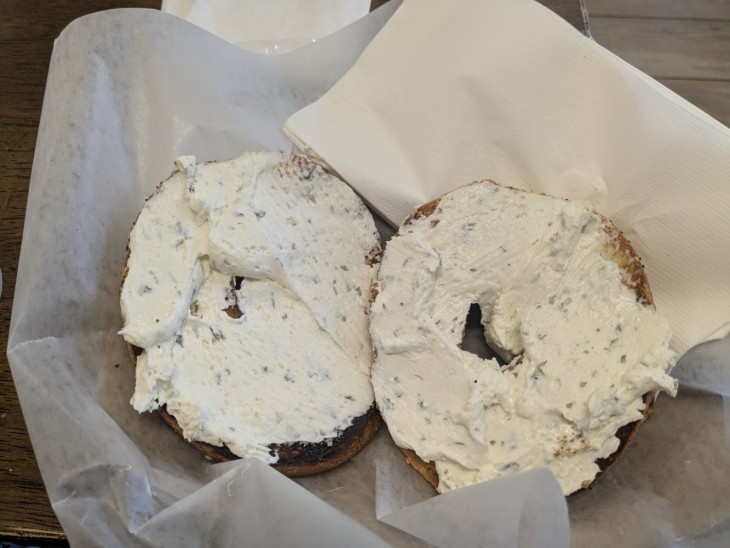In the few months leading up to the summer, many people put extra attention on their diet and try to lose a few extra pounds. While the health benefits of vegetables are a no-brainer, the multitude of “diet” and “good-for-you” foods lining the market shelves can cause real confusion. Don’t be tricked by diet foods that promise to help you shed pounds, but only add more to the scale. Be sure to check the ingredients before you stock up on that sugar-free snack!
Beware Of Sugar Substitutes
In general, sugar is not good for your health. Sugary treats often lead to fluctuations in your blood sugar that can cause mood swings, fatigue, and symptoms of depression. Over time, chronic sugar consumption may deplete B vitamins and raise your risk for developing diabetes and obesity.
If sugar is that bad, you might think the solution is to reach for sugar-free foods. However, don’t be fooled into thinking that guzzling diet soda all day will keep you looking and feeling your best. One recent study, published in the Journal of General Internal Medicine, found an association between increased risk of cardiovascular disease and drinking diet beverages. All that soda pop may also increase your risk of diabetes and expand your waistline!
Artificial sweeteners are used to replace regular sugar, but they don’t add any nutritional value. In fact, sometimes these sweeteners may be up to 200 times sweeter than regular sugar, which can trick the brain into preparing the body to metabolize a calorie load that doesn’t exist. As a result, the body is left craving more food, while you are left with a sweet tooth! Diet drinks, baked goods, powdered drink mixes, candy, puddings, canned foods, jams and jellies, some dairy products, and many other foods and beverages may contain artificial sweeteners – so be on the lookout.
In addition to artificial sweeteners, many products contain sugar alcohols in place of sugar. Sugar alcohols are naturally-occurring carbohydrates found in fruits and vegetables. Only a few calories less than sugar, these sugar substitutes are also found in scores of processed foods and products such as gum, toothpaste, beverages, candy, and baked goods. While they occur naturally, their main drawback is that they often cause bloating and gastrointestinal discomfort.
Be a savvy shopper about sugar: read the ingredients on all products and steer clear of the following artificial sugar names: sucralose, aspartame, acesulfame potassium, and neotame. To avoid sugar alcohols, watch for the following names in the ingredients: erythritol, hydrogenated starch hydrolysate, isomalt, lactitol, maltitol, mannitol, sorbitol, and xylitol. Instead, try a natural alternative to sugar that won’t wreak havoc on your waistline or blood sugar, such as Stevia, made from the stevia leaf. As always, moderation is key!
Bonus Tip: For a delicious, whole food vitamin that is naturally sweetened with a hint of stevia – and packed full of antioxidant-rich fruits and vegetables – try Liquid Whole Food Vitamins. Enjoy it in your morning smoothie for a boost of vitamins!
Forego Fat-Free Foods
It’s a common misconception that cutting fat from your diet will improve your chances of weight loss. Fat is an essential nutrient that our bodies require for multiple functions, one of which is to absorb vitamins. Fat also gives flavor to food and provides a feeling of satiety, so you won’t feel like you are chewing on cardboard! When manufacturers remove fat from a food, they often replace it with sugar and additives to make it more edible. As a result, you and your taste buds are left unsatisfied, which may tempt you to consume more calories.
Instead of limiting fat in your diet, learn to decipher between heart-healthy fat and artery-clogging trans fats.
While overconsumption of saturated fats can raise your risk for heart disease, eating small amounts may actually benefit your health. Organic eggs and coconuts can provide healthy benefits when enjoyed in moderation. In addition, mono- and polyunsaturated fats like nuts, olives, seeds, and avocados are other heart-friendly foods that should make an appearance on your plate. The health benefits of omega-3 fatty acids are well documented, so enjoy delicious, oily fish like wild salmon and sardines, flaxseeds, walnuts, and chia seeds.
Fat Chance: To ensure that you avoid any foods that contain trans fats, look for the words “partially hydrogenated” in the ingredient list.
May you live long, live strong, and live happy!
Dr. Mao Shing Ni, best known as Dr. Mao is a bestselling author, doctor of Oriental Medicine and board certified anti-aging expert. He has appeared regularly on “Dr. Oz,” “The Doctors,” and “EXTRA.” Dr. Mao practices acupuncture, nutrition, and Chinese medicine with his associates at the Tao of Wellness in Santa Monica and Newport Beach. Dr. Mao and his brother, Dr. Daoshing Ni founded Tao of Wellness more than 25 years ago in addition to also founding Yo San University in Marina del Rey. To subscribe to his tip-filled newsletter please visit www.taoofwellness.com. To make an appointment for evaluation and treatment please call 310.917.2200 or you can email Dr. Mao at contact@taoofwellness.com.


























